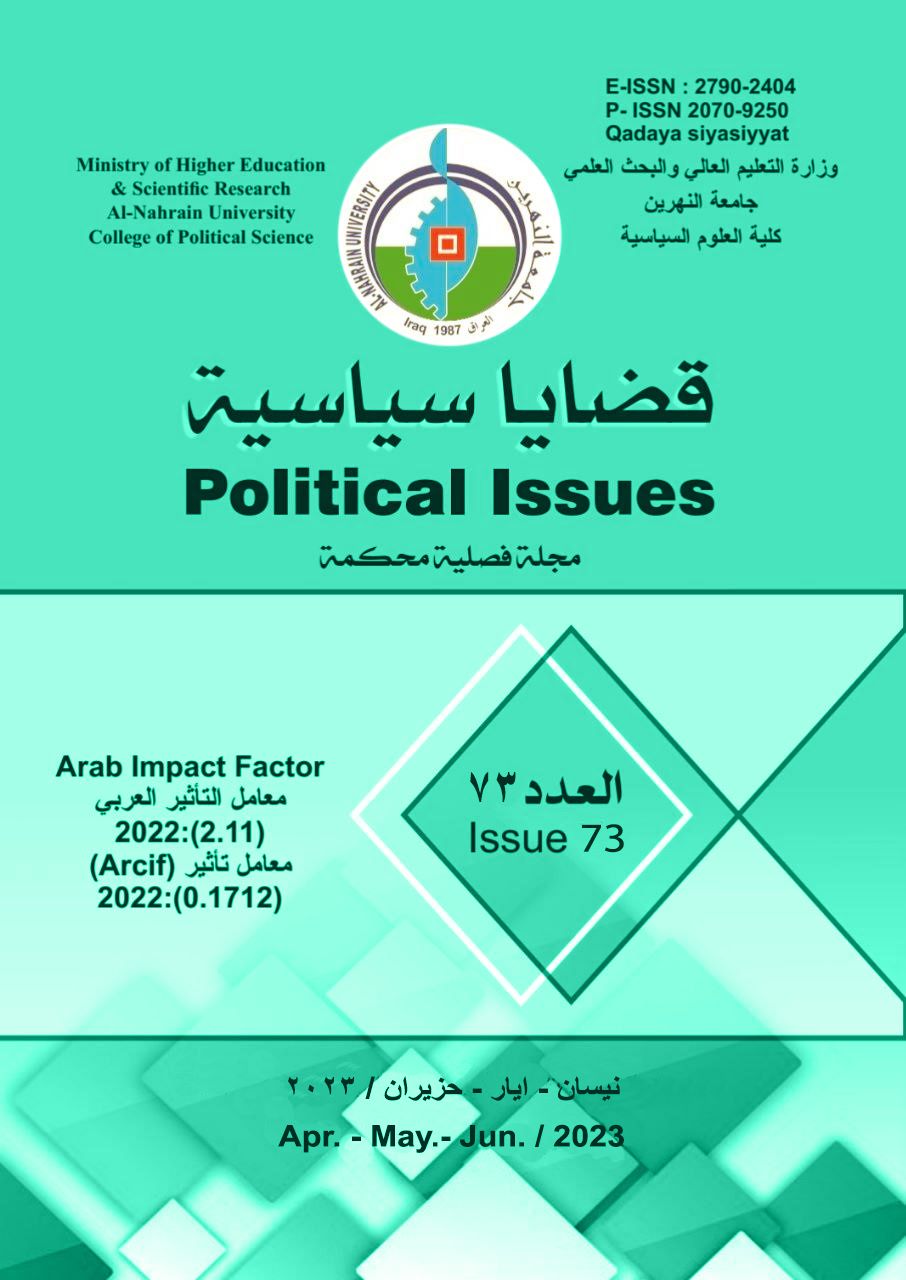الكرد الفيليون إشكالية المواطنة والجنسية في ضوء القانونين العراقي والدولي
DOI:
https://doi.org/10.58298/732023384الكلمات المفتاحية:
القانون العراقي، القانون الدولي، الكرد الفليين، المواطنةالملخص
The research dealt with the problem and problematic matter of the Faili Kurds in the light of two basic issues: nationality and citizenship, and this attributes to the interrelationship between these two issues with the essence of human rights.
The two problems have persisted in Iraq since the establishment of the Iraqi state and the enthronement of Prince Faisal the first as the King of Iraq on August 23, 1921 and until today, especially with the legislation of the first Iraqi nationality law in 1924.
This was before the enacting of the Iraqi Constitution (Basic Law), which was issued in 1925 and established two degrees of nationality, (A) from Ottoman affiliation, and (B) from non-Ottoman affiliation, and it required a certificate of nationality.
And if the problem of nationality and citizenship began in the royal era, it exacerbated in the republican one. The intensification of the political conflict, and the issuance of the second nationality law in 1963, set new restrictions on obtaining nationality, including the approval of the Minister of Interior, which had a negative impact on the Faili Kurds.
the Faili Kurds are the most targeted group. Many decisions of the Revolutionary Command Council were also issued during the seventies, but the most dangerous and strange one was Resolution number (666), May 7, 1980, according to which tens of thousands of Faili Kurds were displaced under the pretext of Iranian affiliation and it continued through the Iraqi - Iranian war (1980-1988).
الملفات الإضافية
منشور
إصدار
القسم
الرخصة

هذا العمل مرخص بموجب Creative Commons Attribution 4.0 International License.
هذه هي مقالـــــة منشـــــــــورة بنمط الوصـــــول الحـــــــر ومـــــــوزعة تحــــــت شــــــروط ترخيص المشاع الابداعي نسب المصنف (CC BY) 4.0 دولي التي تسمح بالاستخدام غير المقيد، التوزيع، واعادة الانتاج في أي وسيط أو صيغة، والتحوير أو البناء على المادة، بما في ذلك للأغراض التجارية، شريطة أن يتم نسب العمل للمؤلف الأصلي.




